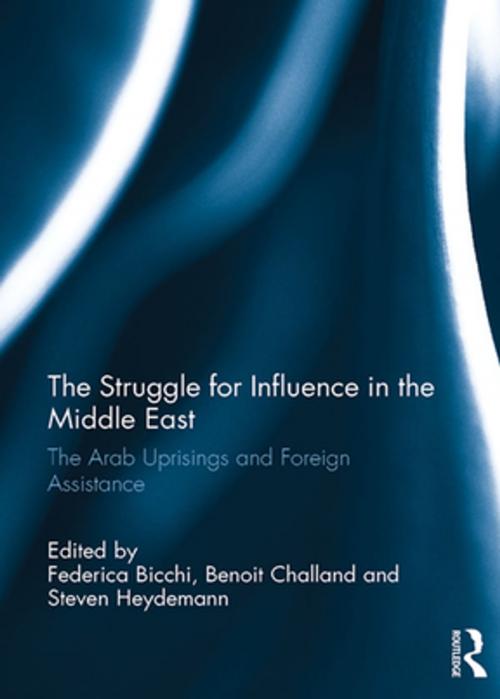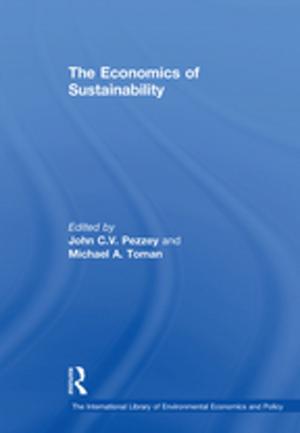The Struggle for Influence in the Middle East
The Arab Uprisings and Foreign Assistance
Nonfiction, Social & Cultural Studies, Social Science| Author: | ISBN: | 9781317385004 | |
| Publisher: | Taylor and Francis | Publication: | February 2, 2018 |
| Imprint: | Routledge | Language: | English |
| Author: | |
| ISBN: | 9781317385004 |
| Publisher: | Taylor and Francis |
| Publication: | February 2, 2018 |
| Imprint: | Routledge |
| Language: | English |
This collection of research papers explores the impact of the Arab uprisings on the politics and political economy of foreign aid provision in the MENA region. Contributions focus on the foreign assistance policies and strategies of key donors (United States, Europe, Gulf countries and Turkey), and on the relationship between donors and recipients of foreign aid in a select set of MENA cases (Tunisia, Egypt, Palestine and to a lesser extent Morocco).
Despite widespread rhetoric among lead donors pledging to support the transformational potential of the Arab uprisings, the contributions find a more complex pattern in foreign aid provision since 2011. Among Arab donors, who have played a significant role as providers of aid to states most affected by mass protests, trends in foreign assistance reflect the competing priorities of donors, and their willingness to politicize aid provision in pursuit of their strategic interests. Among Western donors, authors find a high degree of continuity. Chapters that focus on Western donors seek to account for continuity on the part of Western governments and the EU at a moment of profound transformational potential. Two factors, bureaucratization and securitization, capture most of the explanations provided, which take into account a variety of local dimensions as well. Contributions also discuss the changing assistance environment, namely the globalization of foreign assistance, the complex bureaucratic arrangements presiding over the delivery of European and US aid, and the role of regional and international non-democracies in the provision of foreign assistance.
This book was published as a special issue of Mediterranean Politics.
This collection of research papers explores the impact of the Arab uprisings on the politics and political economy of foreign aid provision in the MENA region. Contributions focus on the foreign assistance policies and strategies of key donors (United States, Europe, Gulf countries and Turkey), and on the relationship between donors and recipients of foreign aid in a select set of MENA cases (Tunisia, Egypt, Palestine and to a lesser extent Morocco).
Despite widespread rhetoric among lead donors pledging to support the transformational potential of the Arab uprisings, the contributions find a more complex pattern in foreign aid provision since 2011. Among Arab donors, who have played a significant role as providers of aid to states most affected by mass protests, trends in foreign assistance reflect the competing priorities of donors, and their willingness to politicize aid provision in pursuit of their strategic interests. Among Western donors, authors find a high degree of continuity. Chapters that focus on Western donors seek to account for continuity on the part of Western governments and the EU at a moment of profound transformational potential. Two factors, bureaucratization and securitization, capture most of the explanations provided, which take into account a variety of local dimensions as well. Contributions also discuss the changing assistance environment, namely the globalization of foreign assistance, the complex bureaucratic arrangements presiding over the delivery of European and US aid, and the role of regional and international non-democracies in the provision of foreign assistance.
This book was published as a special issue of Mediterranean Politics.















